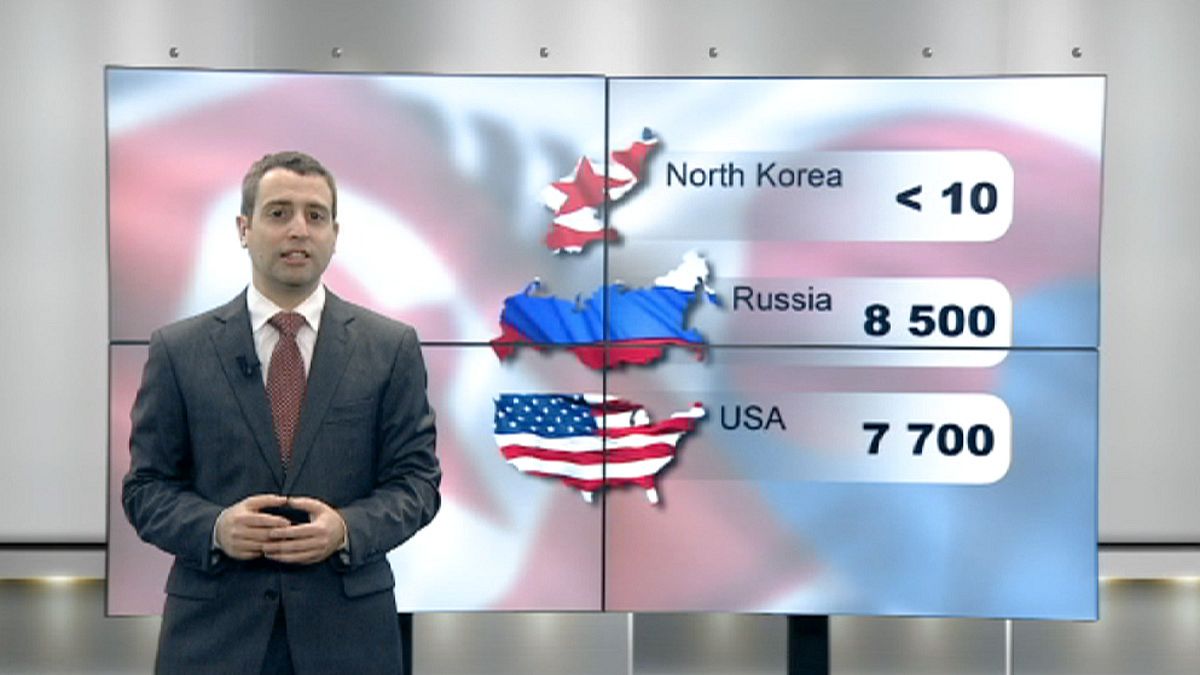North Korea has raised political and military tensions on the last weeks with serious threats directed at its enemies South Korea, Japan and the United States. It started on February with an underground nuclear test that prompted sanctions by the UN Security Council. From there to a nuclear threat was just a step.
It is estimated that North Korea has nearly 10 nuclear warheads, substantially less than Russia’s 8,500 or the 7,700 of the US. But Pyongyang might have the capacity to strike America using its Taepodong 2 missile with a range of 6,000 kilometres or the untested UNHA 3 with an estimated capacity of 10,000 kilometres.
Joining us from Seoul, the Northeast Asia bureau chief of Voice of America, Steven Herman.
Michel Santos, euronews:
Steven, will Pyongyang go as far as launching and attack?
Steven Herman, VOA:
There is not a single expert that I have spoken with in the diplomatic community, in the military or in the intelligence world who feels that North Korea is going to launch any sort of military attack. What they may do is test launch a missile, although there’s scepticism that they will test launch in the next few days this new medium range missile – the Musudan – because it has never been tested, and to do this around the birthday of founder Kim Il-sung, if it fails, it would be a great embarrassment. But North Korea has kept everyone guessing and it is predictably unpredictable, so no can actually predict what will happen. But the chances of war seem extremely remote.
euronews:
Who is actually running North Korea?
Herman:
I don’t think there is any doubt that we should assume that the current leader Kim Jong-un, grandson of founder Kim Il-sung is in charge. In Korean history the bloodline is extremely important. That was the case with kings through the centuries and there’s little doubt it seems – even though he is very young and the sort of things we are hearing about him that he is too young, he is inexperienced, he is a fool, he is diabolical – we heard these kind of things when his father Kim Jong-Il came to power and there where lots of predictions of the imminent collapse of the regime. And of course Kim Jong-Il was around for a long time.
euronews:
But some people say that China is behind this crisis and that the main target is Japan due to oil interests on some disputed Pacific islands. Would you agree?
Herman:
That China is somehow manipulating that? That is an interesting theory which I don’t thing many people would subscribe to. What this seems directed at, is perhaps a number of different issues. North Korea wants attention, it wants negotiations and recognition from Washington. It definitely wants to be taken seriously and it would like to have aid, whether that aid is coming from Washington or Seoul. And by committing this provocation and keeping a sense of an imminent state of war it potentially could cause damage to the economy here in the south. Perhaps what North Korea is looking for is some sort of concession from the new government of South Korea’s new president Park Geun-hye to negotiate and resume substantial aid as a couple of predecessors did some years ago.


